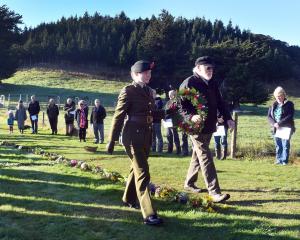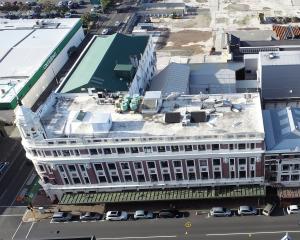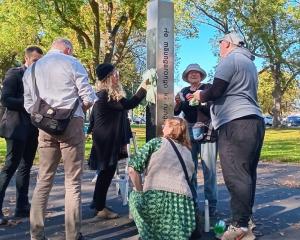Dunedin International Airport chief executive John McCall said the response by Air New Zealand and police to the incident was a "shambles" that resulted in "absolute total confusion", with the airport and passengers caught in the middle.
Mr McCall said the disruption suffered by in-bound and out-bound Dunedin passengers, after a woman left a note at Wellington Airport saying there was a bomb on a flight bound for Dunedin from Wellington, was excessive.
Police defended their decisions made on the night, saying in an increasingly security-conscious world they took seriously a note left in an airport threatening to blow up a plane.
Air NZ said the threat was deemed to have no substance so it allowed the flight to continue as normal.
Dunedin area commander Inspector Greg Sparrow yesterday apologised for subsequent disruptions at Dunedin airport, but said he had acted to preserve the public's safety.
He admitted communication could have been better and said he intended to make sure systems were improved.
Hundreds of passengers' movements into and out of the airport and to Dunedin city from the airport were disrupted and confusion reigned when police blocked off access to the airport just after 8.15pm.
Passengers on incoming flights, people waiting to fly out, and family and friends coming to pick them up or drop them off, were kept in the dark about what was going on for about 90 minutes. As ambulances and fire engines flanked the airport terminal, police cleared the area, with those evacuated from the terminal having to wait in a hangar while the plane was searched.
Police outside the airport later started telling people all flights were cancelled, although they had not been.
"There was absolute total confusion," Mr McCall said.
There appeared to be a communications break-down between the airline and police and then among police, he said.
Air New Zealand and Aviation Security had decided the note was a "non-specific threat", which meant things more or less carried on as normal, but somehow, when the flight arrived in Dunedin, it was being treated by police as a "specific threat".
"It can't be both."
Despite the threat being treated as specific, agreed procedures were not followed.
For example, the plane subject to the threat was parked beside the terminal, when it should have been left on the tarmac and a 200m exclusion zone put up around it, and people were sent on to the plane to search it instead of a bomb dog being sent.
"We were extremely disappointed. We have clear plans for what happens in the case of bomb threats. We have had a number of these sorts of incidents before and we have followed procedures and it has all gone well.
"The communication side of things and the way things happened was a shambles, and it should not have been."
Insp Sparrow said Wellington police contacted Dunedin police about 8pm, an hour after Wellington police found the note in a toilet block, and a full emergency response to a specific threat - which police took seriously - was begun.
By the time police arrived at the airport, the plane had landed and the passengers had disembarked. It was after that police were told Aviation Security had deemed the threat to be non-specific, but by then some people had already been evacuated from the terminal and cordons were in place around the airport grounds.
Air New Zealand, Aviation Security and police discussed how to proceed, but as the plane's pilot was unhappy about flying the plane again without it being searched for a possible bomb, Insp Sparrow said he decided to evacuate the airport and have the plane searched.
The plane was therefore not able to be moved from its position directly outside the terminal.
The Aviation Security search team agreed to search the plane, as the nearest bomb-detection dog was in Christchurch.
The flight was then cleared to proceed and passengers were allowed to board the plane.
Insp Sparrow did not respond to a question about why police were telling people flights were cancelled, when they were not.
He apologised for any inconvenience and disruption resulting from the decision to evacuate the airport. However, it was made in the interests of public safety, he said.
"This was a rapidly developing situation in which decisions had to made very quickly and sometimes with limited information."
He agreed there were communication issues with the public that needed to be resolved and a clear determination was needed on how that would be managed.
He planned to meet Dunedin Airport Ltd, Air New Zealand and Aviation Security representatives for a debriefing on the incident and to discuss how things could be done better in the future.
An Air New Zealand spokeswoman declined to discuss how the decision the note constituted a non-specific threat was reached.
She said people on another in-bound flight forced to wait on the Dunedin tarmac after the Wellington flight landed were updated three times by the crew.
An airline manager also went around passengers waiting outside the terminal to inform them of the situation.












